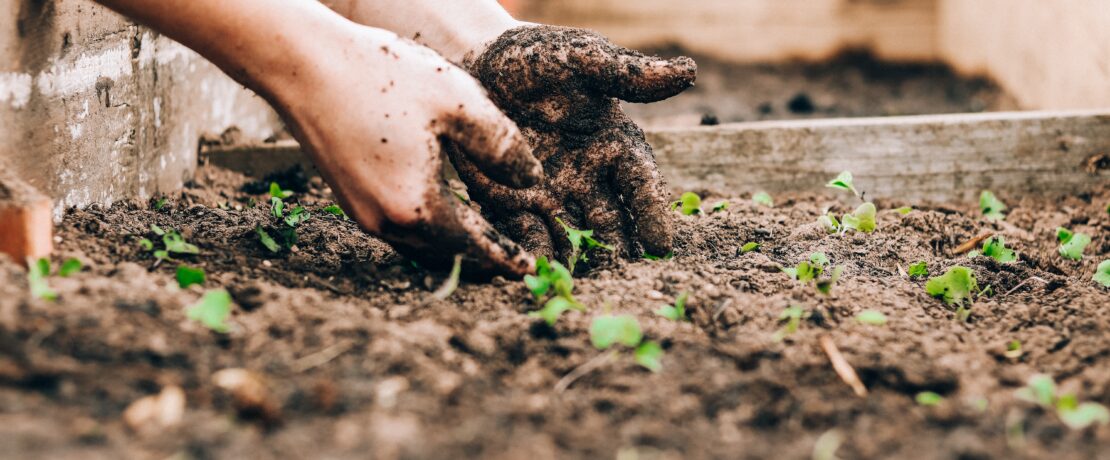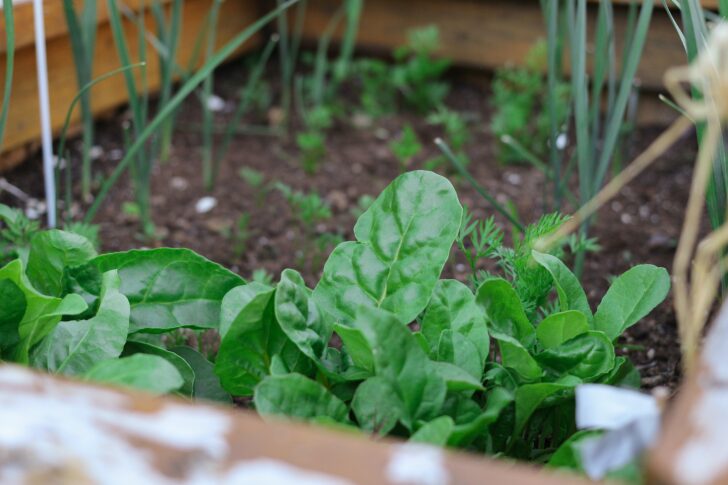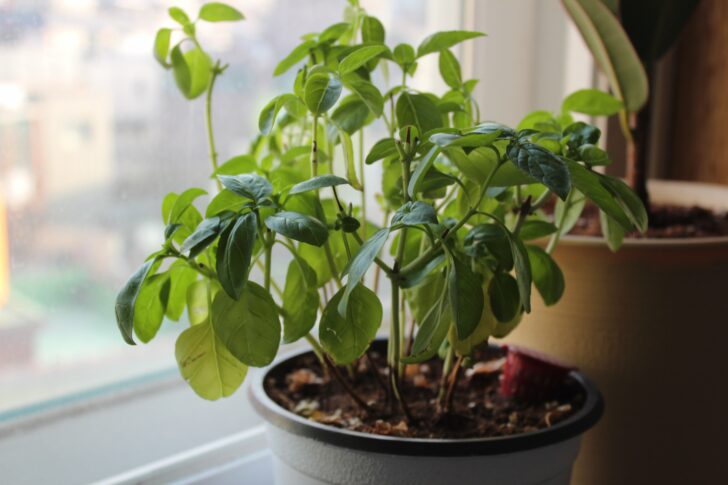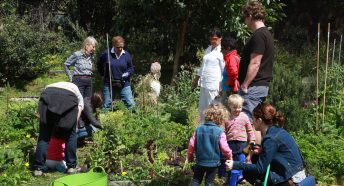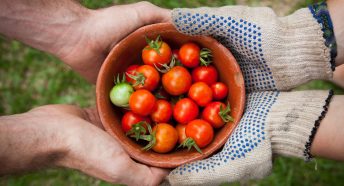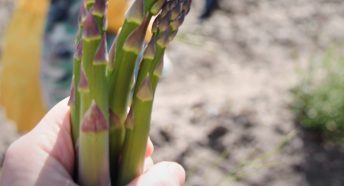Ros’ top tips for growing your own food on a budget
This year, we started a new challenge of beginning to transform our small back garden into a space where we could grow as many plants that we could eat as possible.
We’d just given up the allotment we’ve cultivated (or should that be tried to tame!) for over 15 years, as were struggling to find the time to devote to it. But once you’ve tasted your own produce, it’s hard to go back to plastic-wrapped supermarket vegetables.
We’ve always grown organically and relied on bugs, birds and bees to do what they’re best at. There’s no need to use chemicals for plants to grow healthy and strong. With a quick internet search, you can find recipes for fertilizers made from everyday items and plants that you can easily find, or may already have in your garden, including weeds!
Growing on a budget
Our budget was next to nothing, and we decided it was best spent on compost to get our growing off to a good start, so we had to be resourceful with everything else. But it’s amazing what you can find for free if you put your mind to it. We gained two lovely wooden planters a neighbour was giving away which we’ve grown salad leaves in throughout the year. An ask on our village WhatsApp group brought some big plant pots we use for fruit bushes. If you live in a more urban area, keep your eye out for garden items being given away outside of people’s houses or in skips.
Growing organically is good both for our health and the planet. Organic produce comes with a hefty price tag and ordinary fruit and vegetables are sprayed with chemicals which damage our bodies and the environment. Growing our own veg is a small practical action we can take to help mother nature and our wellbeing.
Here’s what we’ve learnt to give you some inspiration to try growing yourself.
1. Make your own compost
Compost bins take up valuable space, but it’s worth having one. They will magically turn your kitchen and garden waste into lovely fresh compost and save a lot of money in the long run. Plastic compost bins are great for gardens as they are well sealed to keep the smells in and pesky rodents out.
2. Be careful with your space
Think about the size of the mature plants and how long they take to grow (you can find this out on the back seed packets). For the space that three or four cabbages take up, you could have a supply of (much more expensive!) lettuce lasting for many months
3. Grow what you like to eat
There’s no point in growing fruit or veg you’re not keen on, instead, fill the space with what you love. Much of our produce doesn’t even make it into the kitchen!
4. Encourage feathered friends
Not only is it joyful to see birds in your garden, but they’re also brilliant at picking those pesky bugs off your plants. We have a bunch of boisterous sparrows living in a hedge and a few friendly visiting robins that I think of as fellow gardeners.
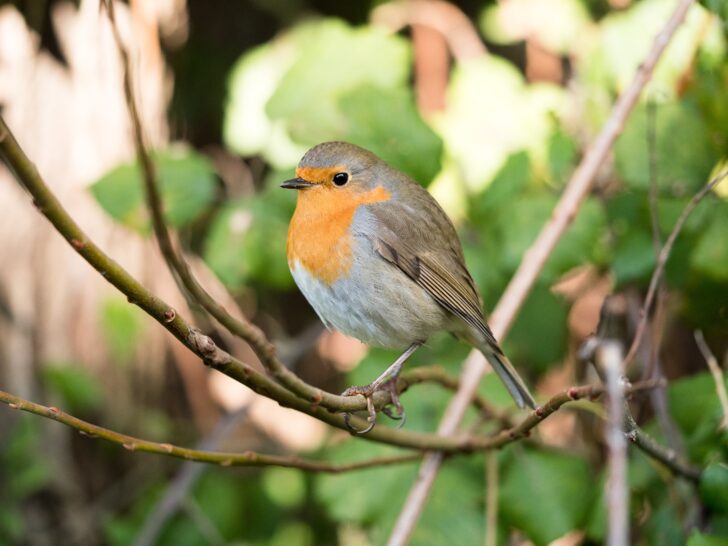
5. Keep an eye out for bargains
Look out for the reduced sections in garden centres, nurseries and supermarkets. A sad looking blueberry plant I bought for 20p from our local supermarket has given us a steady supply of toppings for our breakfasts, and they’re much tastier than what we could buy instore!
6. Grow your own herbs – or buy a pot
Most herbs will grow happily on a windowsill and are usually easy to grow from seed. Failing that, buying a pot of herbs you regularly use is a great investment. They’re often so tightly packed in that they soon wither and die when you get them home. Divide each plant into four and place in a pot with plenty of room for growth and some fresh organic compost. A single pot of basil has supplied us with fresh leaves for over six months now and made our pasta dishes even more tasty!
7. Grow insect loving plants
These don’t have to be edible but will bring those all-important critters into your garden for the essential job of pollination. Lavender, sedum, sweet peas, thyme and sage are all great for this, with the bonus that you can eat some of them too!
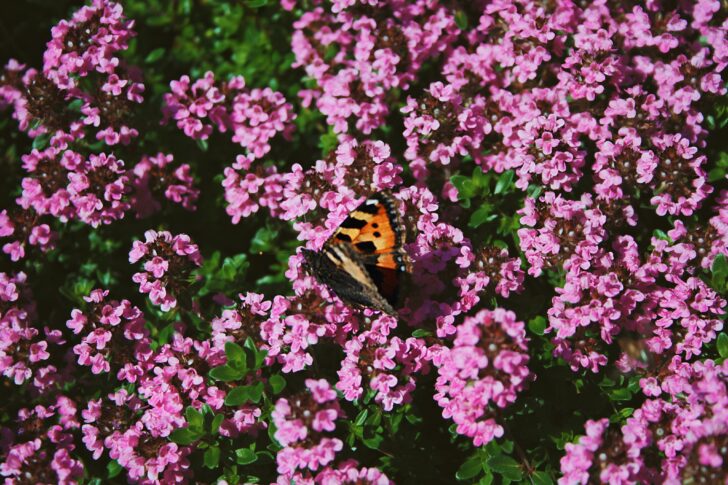
8. Look outside your garden fence
There are many fruits you can safely forage including blackberries, elderberries, apples, damsons and sloes. Chat with your neighbours who have fruit trees as they often end up with more than they need at harvest time and would be happy for you to pick some in return for a jar of jam. Please make sure you can safely identify them first and pick responsibly.
9. Get friendly with people at your local allotments
Allotment owners will often have more seedlings or plants than they’ll ever need and will be more than happy to pass them on to a loving home.
10. You can still grow produce without a garden
An empty windowsill or balcony can be filled with herbs, chilli and even tomato plants. You’ll find many compact plants for sale in supermarkets and garden centres, specifically for people with little space.
11. Make friends
If you’d like to meet like-minded people, you could join a community garden. You can find out about these from community notice boards, your local library or volunteer centre, or the Royal Horticultural Society’s handy map. The National Allotment Society has advice on finding an allotment and there’s a growing movement of people renting out spaces in their garden with organisations such as AllotMe.
12. Enjoy the fruits of your labour
Whether you can grow on a big or small scale there’s much joy to be found. Picking tomatoes still warm from the sun, or your own-grown herbs, and there’s nothing quite as exciting as digging up your potatoes, it’s like finding treasure and is a family occasion in our house. Growing your own food brings you closer to nature and reduces your carbon footprint in the process – so it’s win-win!
